Interview: we talk environment, sustainability and lockdown, with Nikwax’s Sustainability Director
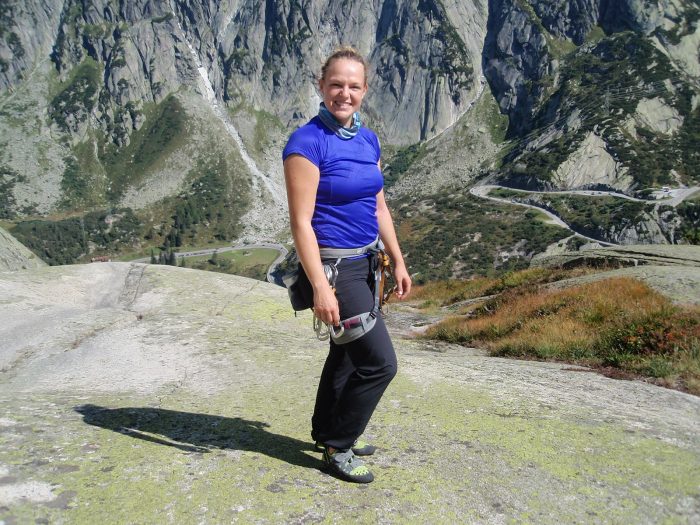
Here at Nikwax, our passion for the great outdoors and protection of the environment is at the heart of what we do. We constantly strive to improve our sustainability and environmental credentials throughout the business, and with that focus, we employed our own Director of Sustainability.
We speak to Maïté Angleys about Nikwax, the outdoor industry, and the impact of lockdown.
So then Maïté, how did you become Director of Sustainability?
I undertook a Bachelor’s Degree in Intercultural Business Studies and during this course, I started to ask questions about business ethics. Much of what we were taught included telling us ‘this is how businesses should run’ … I began to question that information, or simply did not agree with what I was being told. When the questions became more pressing from me, it led to me moving on to do a Masters in Sustainability Management. I wanted to learn how you lead a business in a sustainable way.
As part of my Masters, I ended up doing an internship with Páramo – this went really well and I actually went on to do my thesis with Páramo. I analysed sustainability management tools and held a meeting, which Nick Brown (CEO) sat in on. He seemed impressed and went on to ask if I would like to start in a role as Director of Sustainability at Nikwax!
Nikwax has achieved a vast amount over the last 44 years and continues to do so. Since joining the company, what has been a key moment for you within your role as Sustainability Director?
Firstly, it is the creation of the role of Sustainability Director, not because of me having this role! The fact that Nikwax chose to have this role embedded high within the company structure, solely dedicated to this topic, is key. To me, it says a lot about how Nikwax takes this issue seriously – many other companies do not have such a role in their organisation.
We have also just completed the development of our sustainability strategy for 2025. We have seen that across the entire company people have put in extra hours, interest and creativity to the development of this strategy. This is remarkable and cannot be taken for granted.
What are the current key focuses for Nikwax, in terms of sustainability and the environment?
The most pressing issue is the climate crisis and loss of biodiversity, so we are focusing on our climate action programme, where we work towards energy reduction and reduction of GHG emissions.
With biodiversity loss, we have been re-naturalising the farmland behind one of our business locations in rural Sussex. We are trying to heighten biodiversity right on our doorstep and want to ensure the beautiful landscape continues to exist.
Lastly, our chemical management system, where we are developing a comprehensive and holistic system to ensure nothing hazardous comes in or leaves our production. The chemical management system helps us to constantly develop further and lessen the environmental impact of our products and our production.
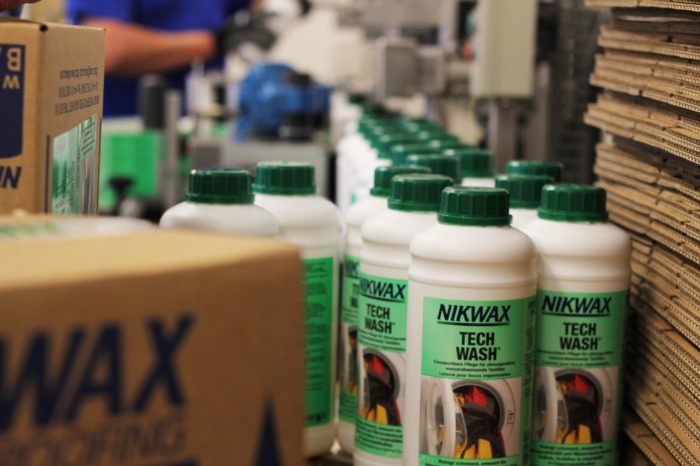
Nikwax has forged relationships with a number of environmental organisations, can you tell us a little about these?
Since 2007, we have had a key relationship with the World Land Trust (WLT) through Carbon Balancing. We compensate our operative emissions and our contribution helps to protect and regenerate vital ecosystems. WLT focus on using donations to purchase land in order to conserve fragile habitats, rather than, for example, undertaking reforestation to compensate for C02 emissions. After all, you cannot simply replace one ecosystem with another!
We have worked with the European Outdoor Conservation Association (EOCA) since its foundation in 2006. The great thing with EOCA is that they raise funds from members of the outdoor industry and they have supported some vast conservation projects, which get voted for by members and the public. Our CEO, Nick, was actually the Vice-President for some time on the board of EOCA.
One of their recent campaigns was to plant 2 million trees – which is a lot! – a target they achieved in two years. The Plastic Free: Mountain to Sea project followed, focusing on plastic removal from the environment (rivers, forests and mountains). They smashed their 2-year target of clearing 3,000km of waste, instead clearing a total of 4,183km of plastic pollution! Bringing outdoor members together, they maximise the impact they would have, compared to if each organisation just campaigned by themselves.
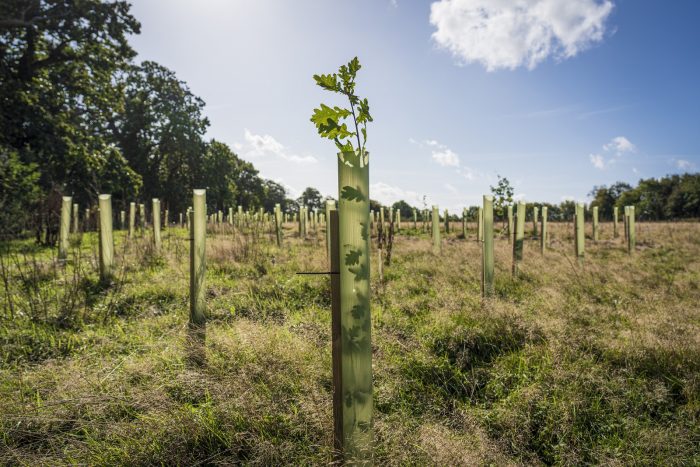
Lastly is the Green Commerce and Chemistry Council (GC3). They are US-focused and hold an annual roundtable for green chemistry, which again involves some big industry players. They are dedicated towards developing sustainable chemistry and chemical solutions. There are companies involved such as DuPont and Dow, large-scale companies that may not focus so much on sustainability compared to others. However, in order to evoke change, these are the people to speak to, because the impact they can have due is enormous.
Where would you like to see the outdoor industry in the next 5 years, in terms of sustainability?
For it to be completely PFC-free! This is something that should have happened five years ago – there is no excuse for bigger industry players to proclaim that there is such a thing as “harmless PFCs”, we know there isn’t. To be fully PFC-free definitely needs to happen.
I would like to see the industry well on its way to achieving a Net Zero Co2 emissions target, in line with science-based targets. Targets are considered ‘science-based’ if they are in line with what the latest climate science deems necessary to meet the goals of the Paris Agreement – limiting global warming to well-below 2°C above pre-industrial levels.
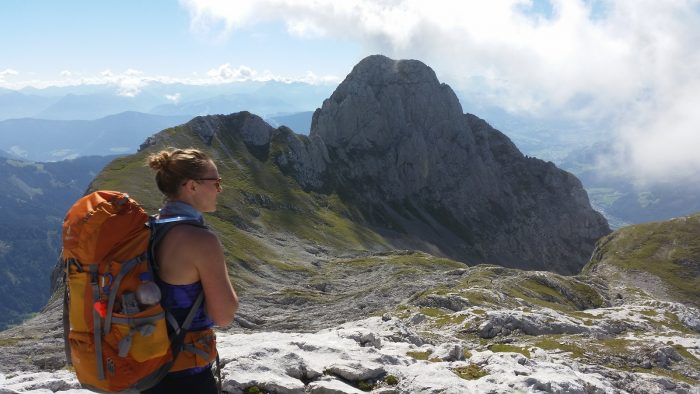
What key things do you feel people could do to help make their lives more sustainable for the planet?
Everybody should always try to consume/purchase less, which is not easy, but with each purchase we make, stop and ask yourself “Do I really need this?”
Secondly, try to purchase better quality products in order to make things last longer. If you purchase items that are better quality, then a) you would have more money and b) things would last longer.
Lastly, think about the impact that advertising has on you. What is causing that need to have something new, to have something else, which can lead to being wasteful? We underestimate how many companies put these thoughts in to our heads, with subtle techniques to keep buying. This need to purchase is often planted into our brains by companies who may not have a very sustainable business model. It is about an awareness that we should try and have.
Do you feel that the past year, with people experiencing lockdown and the pandemic, has had any impact on the environment, or how people just think about the outdoors?
Yes, I think there is a certain change. We can see this across all of Europe – people are becoming more aware of what natural environment is right there on their doorsteps. There is a great meme about the pandemic, ‘Covid or The Great Walk’ – people are walking around their houses and local areas because they cannot travel further afield, so have to explore their immediate location.
Sadly, this is potentially not very long lasting because there is the chance that once this pandemic is over, people could return to their old habits very quickly. I would like to see people learn from this current situation because there is a lot we can compare between the pandemic and the climate crisis. It is something where we have to look reality in the eye, as the climate crisis is so real and right on our doorsteps.
What is your favourite outdoor pastime in Germany and why?
Cycling through Munich. I cycle everywhere – I never used to cycle, it was not something my family really did. I always found it too cold and rainy. However, now I cycle everywhere – you get to see all parts of where you live – you can cycle through the seasons and see your surroundings change around you. I get to experience changes in my neighbourhood and it just makes me feel happy.
Can you give us one happy tip to help people get through this current time when we are experiencing lockdown life?
During lockdown, I have found group Zooms are fun. After a day working online you often wish to escape from your PC, however, meeting online allows you to socialise with a group of people you have not seen for some time, and who have all come together for downtime and some fun. It’s a great mood lifter and a means to interact with friends!
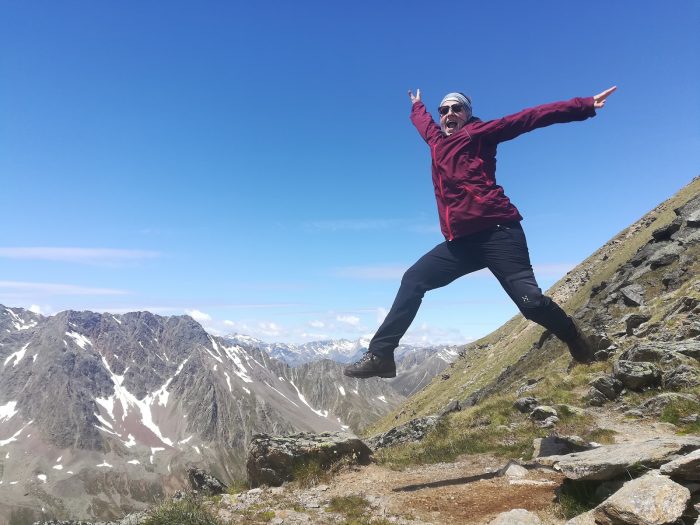

Leave a Reply